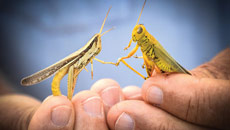To know if the person in front of you is lying, you may rely a lot on your instincts as more than the conscious mind, the body may act as a better lie detector, suggests a study.
“Perhaps our own bodies know better than our conscious minds who is lying,” Leanne ten Brinke, a post-doctoral fellow at the University of California, Berkeley, was quoted as saying.
For the study, researchers conducted a classic lie detection experiment in a different way.
The participants in the the experiment are shown videotape of people, some of whom lie and the participants correctly guess the liars about half the time.
Building on that experiment, the researchers tried to measure the unconscious reactions of the participants once they watched the video and made their decisions.
The participants were, therefore, again shown images of people already in the video only for milliseconds so that this time they could not make any conscious assessments.
In the word task that followed, the participants were slower in placing words like honest or truthful into the “truth” category when the image of a liar was flashed, but they were faster in placing words like deceitful into the “lie” category.
So, people seemed better at detecting lies unconsciously than consciously, concluded the researchers.
With another experiment that involves measuring physiological symptoms like blood flow and perspiration in people who are listening to a liar, ten Brinke hopes to offer concrete tactics to help us identify liars, The New York Times reported.
The study appeared in the journal Psychological Science.





